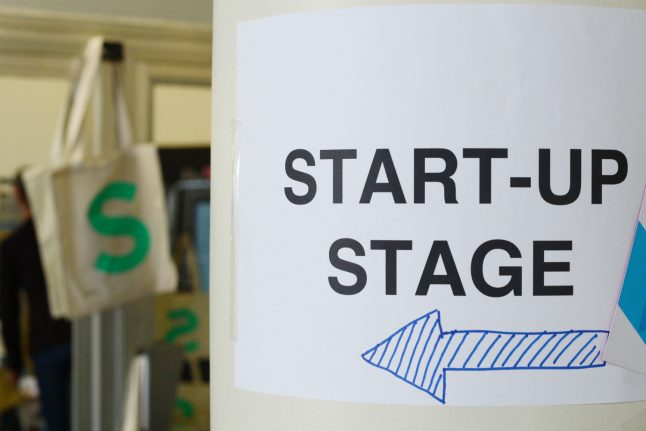Around 1.5 million people work in Berlin. And new figures have found that as many as 78,000 of them are employed in startups – that is, more than five percent of all those in employment.
That's according to an evaluation by business analyst Dealroom and reported on by the Tagesspiegel newspaper. In total there are about 3,000 startup firms in Berlin – and these companies have created an estimated 19,000 jobs in the last two years alone, suggesting that the sector is growing rapidly.
READ ALSO: German startups receive record €6.2 billion in investment
Around half of all jobs in the industry are in companies less than seven years-old and with a maximum of 70 employees.
According to the report, around a third of the startup jobs are in companies with 150 employees or more.
Around 17 percent of jobs are provided by the 10 largest startups in Berlin. Among the top employers in the scene are Zalando, Delivery Hero, N26, Auto1 and Hellofresh.
However, firms like the digital fashion retailer Zalando have long since ceased to be a startup in the classic sense. After five to seven years at most on the market, a startup is considered an established company – if it has survived the first phase.
Companies such as Jamba, Momox or StudiVZ were the first startups to settle in the capital from 1999 to 2005. Between 2006 and 2008, Rocket Internet, Zalando, Soundcloud, City Deal and Delivery Hero were added to the list.
As The Local reported in January, founders and young entrepreneurs of startups across Germany received a record €6.2 billion in investment in 2019, 36 percent more than in the previous year.
Important for economy
The new figures have been welcomed.
Berlin's economic senator Ramona Pop of the Greens said: “The startups not only make Berlin attractive, they also increasingly provide jobs.”
In addition to the jobs boom of new companies in the technology and digital sectors, Berlin is also home to most FinTechs – digital financial service providers.
READ ALSO: Germany ranks as best European country for startups
About 300 of them have settled in the capital, putting Berlin ahead of the financial metropolis Frankfurt am Main in this sector.
However, Pop pointed out that many of the recently founded companies do not pay their employees enough, especially compared to established firms.
In order to change this, Pop and North Rhine-Westphalia's Minister of Economics Andreas Pinkwart, of the FDP, are in favour of campaigning for better tax conditions for new companies.
Christian Miele, President of the Startup Association, said: “The figures clearly show the importance that startups already have for Berlin's economy.
“If you look at the rapid development, it is clear that they will be the most important employer in the city in the future – ahead of industry and administration.”



 Please whitelist us to continue reading.
Please whitelist us to continue reading.
Member comments